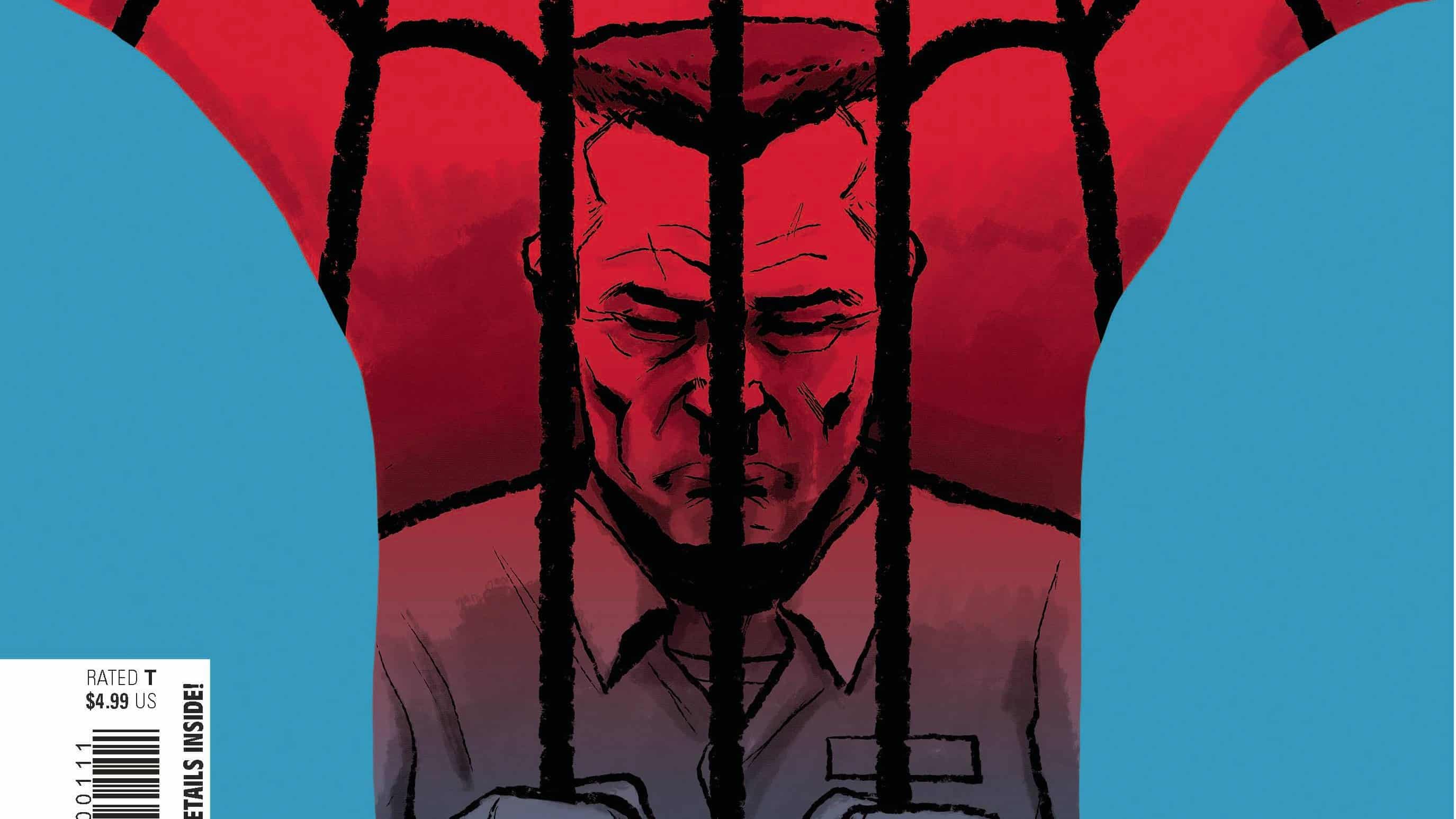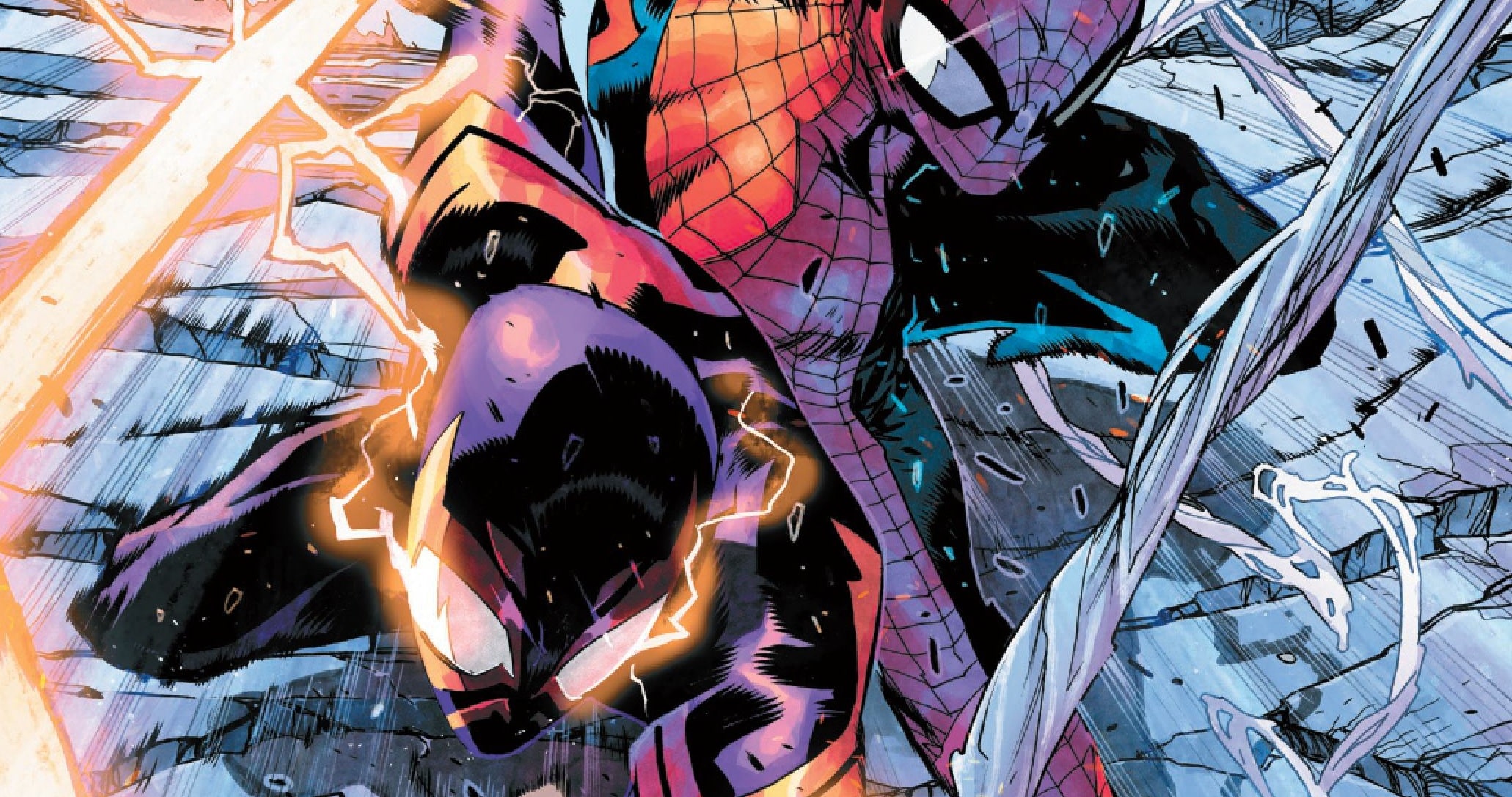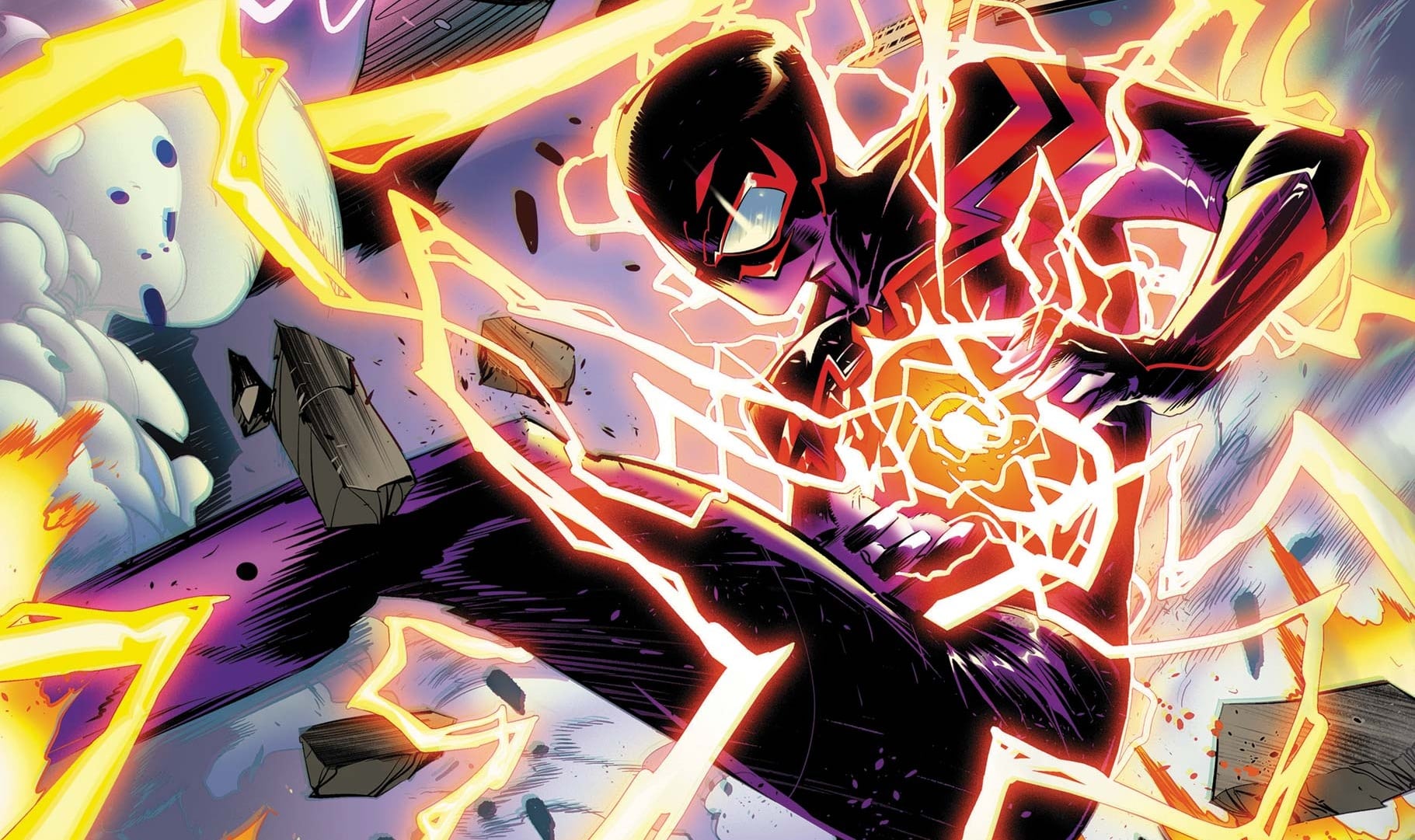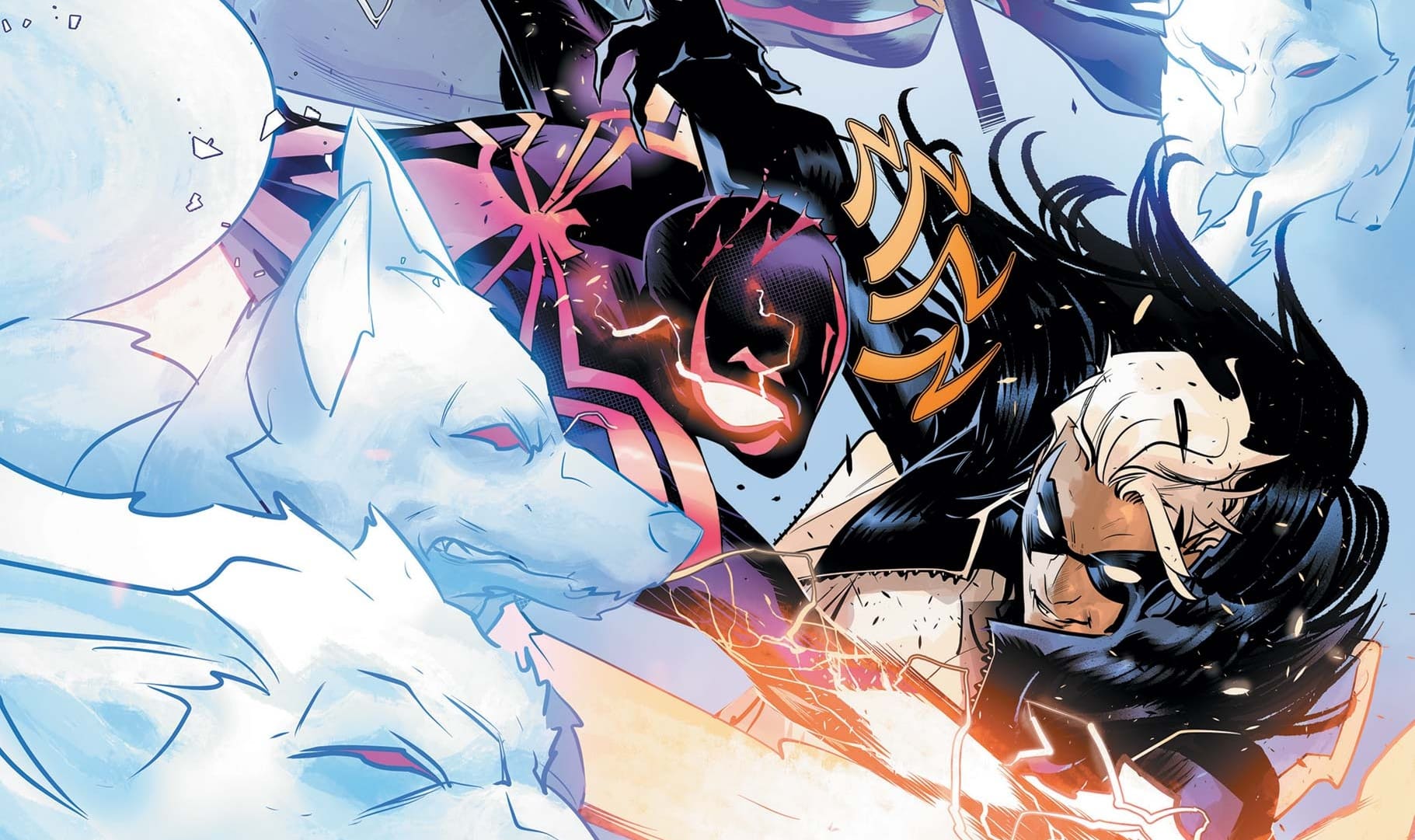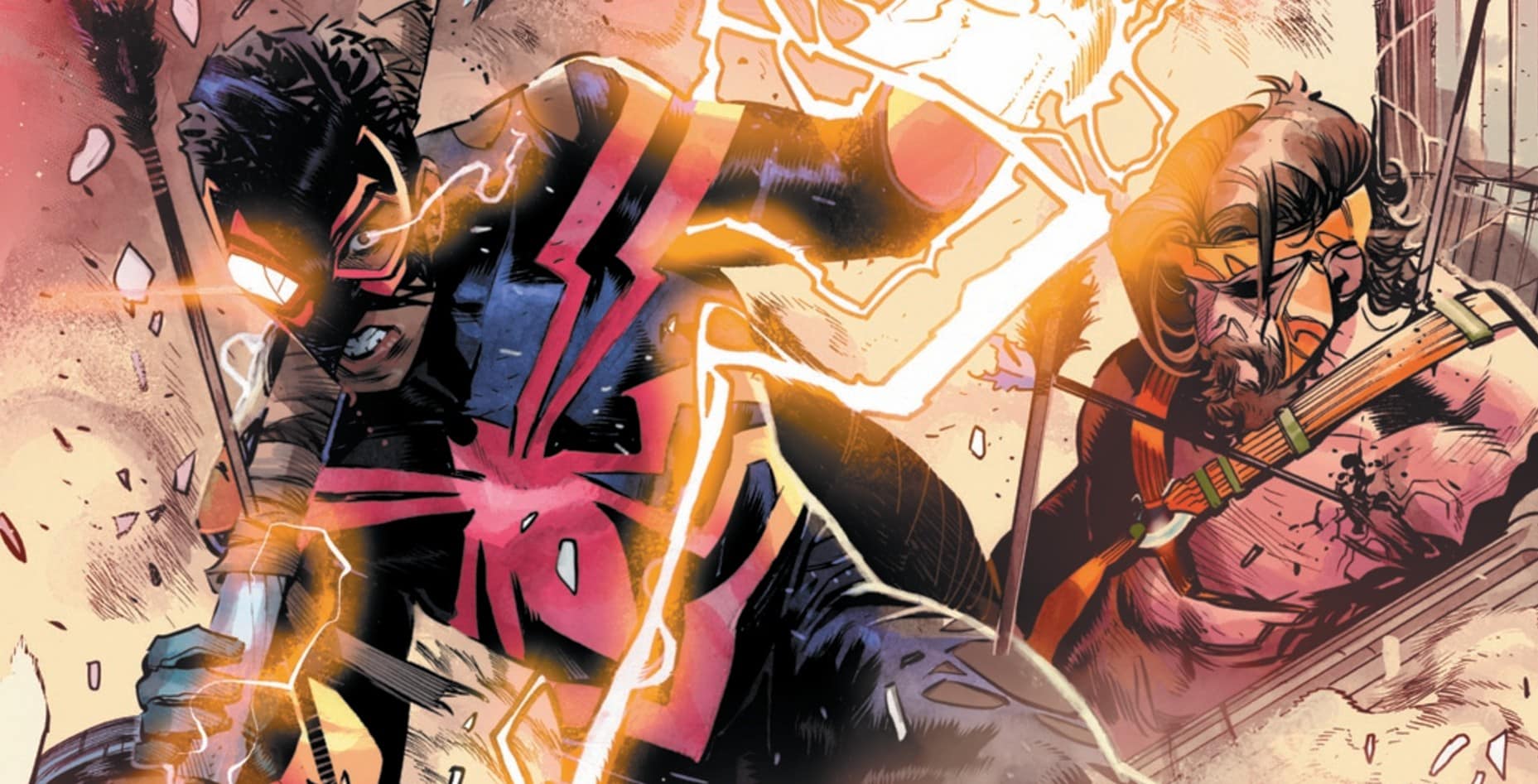Spider-Man. He’s a threat. He’s a menace. And J. Jonah Jameson will do whatever it takes to make the world see it. But in this companion piece to 2019’s Spider-Man: Life Story, will his decades of obsession bear fruit for Jonah … or be his destruction? Let’s do hard time with Spider-Man: Life Story Annual #1, written by Chip Zdarsky, drawn by Mark Bagley, inked by Andrew Hennessy, colored by Matt Milla and lettered by Travis Lanham.
Dan: Tony! It is an honor to be writing with ComicsXF’s resident Spider-person. I am a big fan of Chip Zdarsky and Mark Bagley’s 2019 real-time spin on Spidey, and of old Triple-J in general, so this is a treat.
Tony: It’s so interesting to pick this book up when you remember that the last truly good JJJ story was the Zdarsky-written “My Dinner with Jonah” from 2017’s Peter Parker: The Spectacular Spider-Man #6. This annual is practically a companion piece to that issue, and I really enjoyed it for that.
Dan: Well, now you’ve reminded me there’s an alternate Earth where we could’ve had ol’ Chippee on Amazing instead of Nick “Come to Substack; I’ve got candy” Spencer, and I’ve got the sads again.
Jonah the Journalist

Dan: There’s a line that sticks with me that Jonah says in the 1995 scene: “I’m a newspaperman, Ms. Carroll. From the beginning, all I’ve ever sought out was the truth. Once I became publisher, once I wasn’t reporting … it became more about … opinion … based on what I saw as the truth.”
This fits so well with the trajectory of the Jonah we know and love. At his most cartoonish, he’s the publisher who prints editorial headlines in six-column, 72-point, sans serif font across the front of his New York Post-pastiche newspaper. He’s the desk-pounding “personality” that continued his anti-Spider crusade on the Fox News-ish Fact Channel. And after that crapped out, he pivoted to his own anti-cape blog, Threats and Menaces.
And yet, despite all of that, at the heart of all his bluster, we’ve seen the J. Jonah who actually is a good journalist, who seeks the truth, who cares about the little guy. He’s just been horribly ruined by the death of his first wife and years of hatred of Spider-Man.
As a newspaper publisher, Jonah on his surface has always struck me as everything wrong with depictions of journalism in media. That he started as a self-parody of Stan Lee is telling.
Tony, where do you stand on comics’ best mustache?
Tony: I think you hit the nail on the head with Jonah. On the surface, he’s a stereotype and a blowhard. He’s the worst of everything popular media sees in journalism. But when he puts his hatred of Spider-Man aside (or in more recent years, his pro-Spidey fervor), he might actually be the best journalist in the Marvel Universe, with only Ben Urich and Robbie Robertson able to challenge him for the title.
This is something we’ve talked about in the CXF Slack before — when Jonah is allowed to be a character and not a parody, he might be the best supporting character in Marvel Comics. (I’m not willing to give him the title of best supporting character in comics, though — not when Lois Lane and Jimmy Olsen exist.)
Dan: Amen. We all worship at the altar of Lois.
Tony: Even the Raimi movies got Jonah right — JK Simmons played up the blustery blowhard, but then when it counts, when facing the Green Goblin and near certain doom, Jonah protects Peter instead of trying to save his skin.
Another way this is a companion to “My Dinner with Jonah”: Where that story had Jonah face his sins internally and commit to make up for all the harm he caused Peter Parker, this story has Jonah face the consequences. And that makes sense. In main Marvel continuity, Jonah has come to see Peter almost as a younger sibling. Here, he only has time to build hate for Spider-Man, not a kinship with Peter. So he has to face his sins and pay the price.
One detail I enjoyed in this story is what you mentioned about his hatred for Spidey stemming from the death of his first wife. This adds a level of pathos the story needed, and a motivation Jonah has lacked for so long.
Dan: Besides his eternal memeworthy hunger for pictures of Spider-Man.
Tony: Paaaaaarrrrrker!
Sad Old Men Are Sad

Dan: And while this comic is about one sad old man, it features several sad old men who can’t let go of their past, because it’s all they have. We’ve got Jonah’s prisonmate Norman Osborn, providing a fair bit (but not the only bit, as we’ll discuss in the next section) of connective tissue with the original Life Story series, and we’ve got the Scorpion, the hired goon whose first appearance turned Jonah from Spidey supporting cast member to Spidey villain.
Osborn makes a great cautionary tale for Jonah. As a fellow Spidey-obsessive, and a manipulative supervillain, he spends decades subtly needling Triple-J behind bars, asking him about his memoirs, slipping him the info about Gwen Stacy’s death, passive-aggressively prodding him in group therapy, etc. One of the best panels in the book may be when therapy leader Helen Carroll (again, more on her later) is taking Jonah to task for his attitude and his Spider-blaming. Bagley positions Osborn behind Helen, and you see the slightest smile on his weathered old Brillo-headed face. It’s a spin on the tried-but-true “Norman Osborn appears to have finally gone sane, but has he, though?” gag.
Tony, what’d you think of all these bitter, angry old men?
Tony: I really liked that Zdarsky only used Norman here. I think a lesser writer would have gone straight to filling the prison with all the old villains — Toomes, Dillon and Schultz all would have been easy to include. But he makes it all about a friendship that’s not really a friendship between the two men who lost the most due to their obsession with Spider-Man. It puts them across from each other in an incredibly unique way. Norman is always staying the same, always static. He’s evil through and through (interestingly enough, Amazing Spider-Man #72, also out this week, gives an absolutely ridiculous reason why). But Jonah? He can grow and change. As he realizes what he’s lost — the Bugle, his family, literal years of his life, just through a vendetta that did more harm than good — he grows.
I wish we’d seen that a bit more in the text, but the climax of the issue did give us proof of it. Jonah is given the means to finally take his revenge on Spider-Man — a suit of Spider-Slayer armor that reminds me of the Beetle armor from the early 2000s Thunderbolts stories. It’s an Iron Man-esque armor with enough power to destroy Spidey once and for all.
What did you think of what Jonah actually did with the armor?
Dan: OK, first, you’re right. A prison therapy scene that’s essentially Jonah and the Sinister Six would’ve been HILARIOUS, but it also would have drowned out the dramatic narrative of the story. If anyone could pull it off, it’d probably be Chip, but kudos to him for sticking with the tragedy of it all.
The Spider-Slayer armor looked cool (Where’s that green smoke coming from in that storage locker? WHO CARES!). It’s good that Jonah got to go out righting his first wrong, taking out Mac Gargan. Although on one hand I keep coming back to Captain Stacy’s comment about Mac seeing his end early in the issue, way back in the ‘60s, and wondering why he didn’t actually die, having Jonah fight Mac is a logical way to close the circle that is this story. So, shrug emoji.
Tony: Yeah, it was a fitting end, but it was also weird story logic. Scorpion was near his end but held on for 40 years just so Jonah could serve his time and “heroically” fix his mistake. It worked, but it’s like Zdarsky forgot the plot point from earlier in the issue.
Dan: That said, superheroes and villains turn around from death’s door all the time. For all we know, Mac was about to meet his maker, and then Doc Ock or the Tinkerer or somebody gave him some magic health juice. Which reminds me, I’m out of magic health juice. Guess I’m headed to Target. Need anything?
What the Helen?

Tony: I enjoyed the epilogue of the story, but I think you and I were both taken aback by the big twist of it. After Jonah falls, a hero at last, we see his funeral. In the distance is Peter Parker, incognito. And there Peter meets Norman and Jonah’s therapist, the aforementioned Ms. Carroll, who tells Peter that she hoped they made their peace in the end.
But then there’s that twist.
Helen isn’t who we thought she was. What did you think of the twist of Helen’s identity?
Dan: OK, so about halfway through my first read I Googled Helen Carroll, thinking she was going to be some deep pull Spider-reference from, I don’t know, the Conway run or something.
I wasn’t expecting her to be the Gwen Stacy clone, last seen married to Peter Parker’s clone in Life Story #2.
Marvel has done some nutty things over the years with Gwen Stacy in a bid to keep using a character who is for all intents and purposes still dead. But this I liked. It gave Gwen — excuse me, Helen — a purpose, some agency and a thing to do besides be the girl all the spandex boys want. And shoot, if it prevents us from reliving “Sins Past” in Life Story form, I think we’re all richer for that.
Spectacular Spider-Miscellany
- Is it weird that I’m disappointed Jonah didn’t get prison-ripped?
- His prison beard was pretty great though.
- Yeah, it was.

